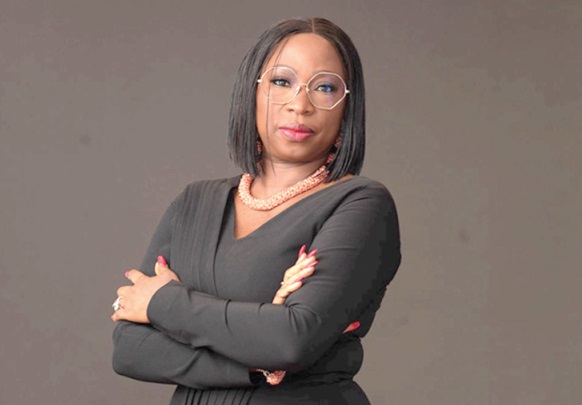
Mastercard connects 1bn people to digital economy
Mastercard West Africa is targeting about one billion people and 50 million micro and small merchants to the digital economy by 2025.
Advertisement
This is part of the organisation’s effort to prioritise digital inclusion, aimed at bringing more individuals and businesses, especially those traditionally underserved or excluded, into the digital economy.
The Country Manager and Area Business Head of West Africa, Mastercard, Folasade Femi-Lawal, who was speaking in an interview with the Daily Graphic about its entrepreneurship support for women and the youth in the sub-region disclosed that the organisation had significantly emphasised on reaching 25 million women entrepreneurs, recognising the importance of gender inclusivity in economic development.
She stated that Ghana’s micro, small and medium enterprises (MSMEs), despite being the backbone of the economy, faced considerable challenges in their quest to grow, including limited access to finance and quality providers of technical assistance and limited skills and management capabilities.
The World Bank, Ms Femi-Lawal said, had indicated that women-owned businesses faced even tougher challenges, as they had limited access to land, capital and more sophisticated business practices.
“Mastercard had multiple agreements with both public and private entities to enable Small and Medium Enterprises (SMEs) with payment acceptance solutions such as Mastercard’s SME-in-a-Box, a low-cost payment solution that enables small business owners to move their businesses online and accept a range of digital payments from their customers,” Ms Femi-Lawal added.
Women In STEM
Their focus, Country Manager and Area Business Head of West Africa stated, had also included expanding access to first-rate education, explaining that women remain underrepresented in Science, Technology, Engineering, and Mathematics (STEM) fields, and “we recognise the fact that they are crucial to fostering diversity and innovation, and addressing gender disparities in these fields.
“To date, we have impacted over 3.5 million girls in 60 countries, including Ghana, intending to reach five million by 2025.
Globally, women seeking to achieve economic empowerment often face three major obstacles such as income inequality, digital inequality and information inequality,” Ms Femi-Lawal said.
According to her, recognising this, Mastercard was intensifying efforts to drive impact by providing women with access to digital tools and training to help them start and grow their businesses, and create mentorship and network opportunities for women entrepreneurs.
Interoperability
Ms Femi-Lawal disclosed that apart from supporting the youth and women, Mastercard was looking at supporting other industrial sectors and social investment areas.
This year, she said, a shared interoperable digital platform known as ‘Community Pass (CP)’, that would provide essential services to digitally excluded and underserved populations, was set to be launched in Ghana. “Additionally, through Farm Pass, we are bolstering agricultural development significantly,” she added.
Focus on Ghana
Touching on the strategic vision of MasterCard for the country, Ms Femi-Lawal said, “Our focus in Ghana is centred around economic impact and enabling digital and financial inclusion, and we have played a proactive and significant role in the development of the country’s economy, financial ecosystem and the wider community”.
She indicated that the country’s journey towards digitalising its payment system had been shaped by collaborative efforts involving the Bank of Ghana and various stakeholders.
“Alongside implementing robust interbank payment systems, the regulatory framework had undergone continuous evolution, providing a legal foundation for the dynamic developments within the ecosystem, the Mastercard Country Manager said.
Commending the country on its surge in the adoption of cashless payments, mobile money and digital technology, indicative of an enabling environment fostering continuous progress, Ms Femi-Lawal, however, indicated that there was room for development, especially with its e-commerce policy framework and business laws, as well as alignment between the country's fiscal policies and financial inclusion goals.




